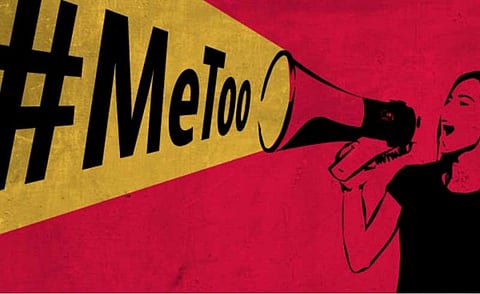

The internet as a digital space transformed the reach and impact of the #MeToo movement. RAMYA KANNABIRAN TELLA and KALPANA KANNABIRAN talk about the way the #MeToo movement has brought about key legal debates on rights and law. The following is an excerpt from their chapter "Traumascapes and an Arc of Resistance: #MeToo in India", from the book, The Global #MeToo Movement published by Full Court Press.
——-
THE #MeToo movement in India has sparked an important national debate that emphasizes some key dimensions with implications for international politics. These are:
(1) the right to protection from sexual harassment/violence,
(2) the right to privacy, and
(3) the materiality of virtual space.
As a social movement, #MeToo has breached spatial, temporal, and social divisions to illustrate the extent to which digital spaces can offer normative and emotional recourse to survivors of sexual harassment, even while offline resolutions remain open. In this essay, we trace the intermeshed trajectories of these themes through conversations on social media platforms and argue that the emergent narratives of #MeToo are enriched by an intersectional approach to the study of social justice.
The composition of the #MeToo movement in India is heterogeneous in terms of individuals, social location, gender identities, and experiences and is fluid—in the making, in a sense, not settled; it is a coarse and unstructured space, the undulations of which draw attention to a politics of affect that plays out on a physical-virtual continuum.
“As a social movement, #MeToo has breached spatial, temporal, and social divisions to illustrate the extent to which digital spaces can offer normative and emotional recourse to survivors of sexual harassment, even while offline resolutions remain open.
The conversations around #MeToo in India have deliberately eschewed the pathways of legal redress, even while keeping ideas of justice at the center. While a detailed analysis of the legal framework is outside the scope of this article, a brief recapitulation is provided to contextualize the movement.
Until 1997, when Bhanwari Devi's case triggered the petition by feminist collectives in Rajasthan to the Supreme Court for guidelines to protect women from sexual harassment at the workplace, the only protections in place were under archaic sections of the Indian Penal Code which defined the offence of "outraging the modesty of a woman" (Sections 354 and 509). It was under these sections that the first major feminist battle against sexual harassment at the workplace was won, with the conviction and sentencing in 1996 of a much-decorated police officer KPS Gill to imprisonment for sexual harassment of a senior officer of the Indian Administrative Service, Rupan Deol Bajaj.
The Vishakha case followed immediately after in 1997, and the Supreme Court issued detailed guidelines that defined sexual harassment and hostile environments, bringing in international standards to set out women's rights at the workplace.